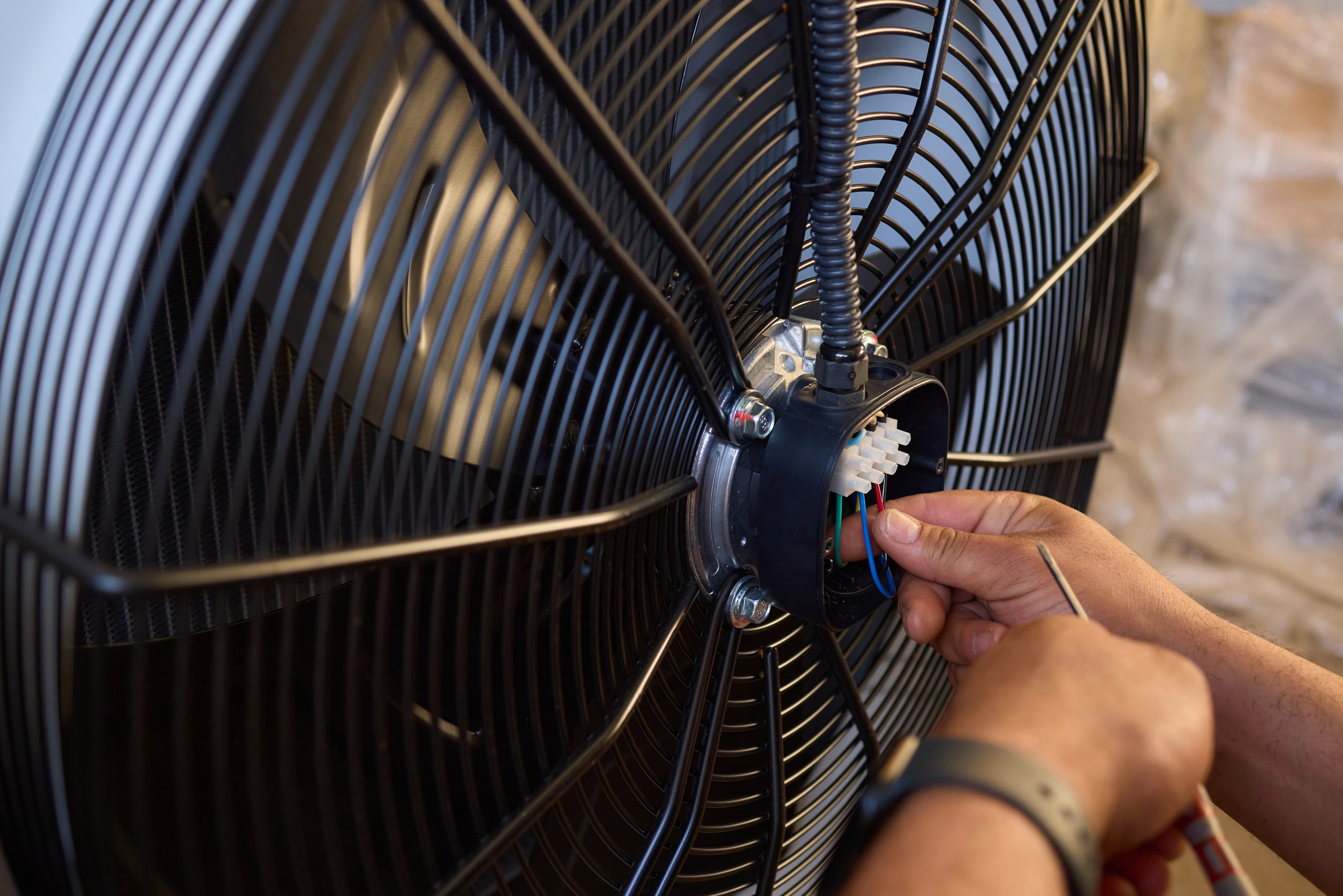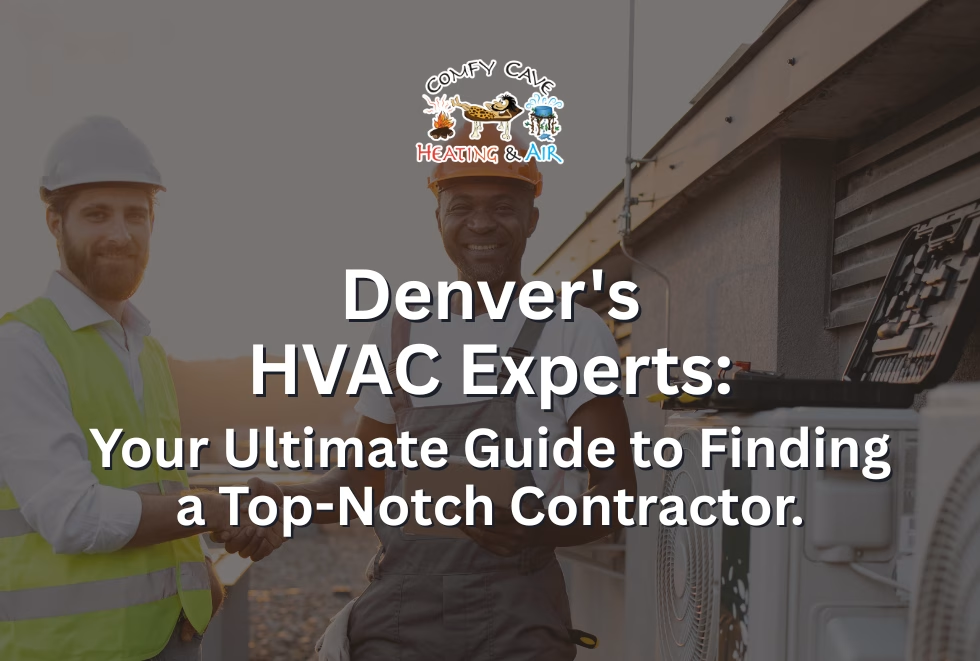Denver’s wild temperature swings mean your heating, ventilation, and air conditioning system works overtime. Choosing the right HVAC company is key to staying comfy and saving energy all year long. This guide will walk you through how to check licenses and insurance, spot skilled technicians, see what customers are saying, compare services, get clear pricing, understand warranties, and ask the crucial questions before you hire. You’ll also discover why Comfy Cave, a local business that guarantees your satisfaction and offers a full suite of services, gives Colorado homeowners and small businesses the peace of mind they deserve.
1. Licensing, Bonding & Insurance: What Every Denver HVAC Contractor Must Have
What Licenses and Insurance Does a Denver HVAC Pro Need?
Licenses and insurance are your contractor’s proof of legitimacy and your safety net. They ensure the company follows Denver’s rules and protects you from liability. A proper license means the technician is trained and tested, and good insurance covers your property and finances if anything goes wrong. Checking these credentials upfront cuts down on risk and shows you’re dealing with a reliable pro, which is super important in Denver’s unpredictable weather.
How Do I Check an HVAC Contractor’s License in Denver?
Start by hopping onto the Denver Department of Excise and Licenses website. You can check the license status, when it expires, and if there have been any issues.
- Ask the contractor for their license number in writing.
- Double-check it on the city’s website or with the Colorado State Plumbing and Electrical Boards.
- Make sure the license covers installing and fixing residential HVAC systems.
Confirming a license through official channels means you’re working with a legit professional, building a solid foundation of trust for everything else.
Why Are Bonding and Insurance a Big Deal for Denver HVAC Services?
Contractor bonding gives you financial protection if the job isn’t finished, and liability insurance covers any damage to your property or injuries that happen during service. Worker’s compensation makes sure you’re not on the hook if a technician gets hurt. Together, these protections guard your investment and show the contractor stands by their work. This is crucial when dealing with heavy equipment and electrical parts.
What Are Denver’s Specific HVAC Licensing Rules?
In Denver, HVAC contractors must have a City and County mechanical license, plus any needed plumbing or electrical endorsements. You’ll need a permit for new system installations or major upgrades, and inspections confirm everything meets code. Knowing these local rules helps you confirm your chosen contractor is fully authorized and avoids costly mistakes or permit fines.
2. Experience & Certifications: Signs of a Skilled HVAC Contractor
How Does Having a License Make an HVAC Contractor More Trustworthy?
A current, valid license shows the contractor keeps up with training, follows safety rules, and is in good standing with the authorities. Companies that are bonded and insured prove they’re financially stable and committed to their work. This legal groundwork directly leads to dependable service and consistent quality for Denver homeowners looking for peace of mind.
How Can I Judge the Experience and Skill of Denver HVAC Companies?
A company’s technician qualifications and how long they’ve been in business tell you a lot about their ability to handle Denver’s tricky heating and cooling demands. Experience with different systems—from high-efficiency boilers to variable-speed heat pumps—shows they can adapt, and special certifications prove deep technical know-how. Focusing on these points helps ensure you hire a contractor who can make your system run its best and last longer.
Why Are NATE Certifications Important for Denver HVAC Pros?
North American Technician Excellence (NATE) certification proves a technician really knows their stuff in core HVAC areas and specific systems. Certified pros consistently nail diagnostics, perform efficient repairs, and install systems perfectly. In Denver’s extreme temperatures, NATE-certified technicians ensure your system runs at peak efficiency, saving you money on energy bills.
How Many Years Should a Reliable Denver HVAC Contractor Have Been Around?
Look for companies that have been operating in the Denver area for at least five to ten years straight. Being around this long means they have solid business practices, loyal customers, and well-honed service methods. Established contractors have seen all sorts of equipment and problems, so they can fix unusual issues fast.
3. Climate Expertise: Why Local Knowledge Matters
What Kinds of HVAC Systems Should Denver Contractors Be Experts In?
Denver’s climate requires expertise in:
- Furnaces and boilers for keeping warm in winter
- Central air conditioners and heat pumps for cooling in summer
- Ductless mini-split systems for comfort in specific rooms
- Indoor air quality (IAQ) solutions like UV filters and humidifiers
How Does Denver’s Local Weather Affect What HVAC Pros Need to Know?
Fast temperature changes and dry air can wear out equipment quicker and mess with how air flows. Contractors who know Denver well understand how altitude affects refrigerant pressure and how engines burn fuel. Their local knowledge ensures systems are sized, installed, and tuned just right to keep you comfortable and reliable through Colorado’s unique environmental challenges.

4. Customer Reviews & Reputation: Real Feedback That Matters
What Should I Look for in Customer Reviews and Reputation for Denver HVAC Companies?
What other people say gives you a real look at how good the service is, if they show up on time, and how they fix problems. If customers consistently rave about clear communication, fair estimates, and friendly technicians, it means the company cares about its customers. Warning signs like repeated complaints about delays or hidden costs point to companies to steer clear of, helping you find a contractor you can trust.
How Do I Find and Evaluate Honest HVAC Company Reviews in Denver?
Check several places—Google Reviews, Yelp, and the Better Business Bureau—to see how many reviews there are and how recent they are.
- Note the average star rating and total number of reviews.
- Read detailed stories about installations or repairs similar to what you need.
- Look for balanced comments about pricing clarity and follow-up service.
What Are Common Warning Signs in HVAC Customer Feedback?
Be wary of reports about:
- Last-minute schedule changes or missed appointments
- Unexpected price hikes or hidden service charges
- Poor communication during troubleshooting or delays
- Lack of support after service or failure to honor warranties
5. Full-Service HVAC Solutions: What to Expect from a Contractor
What Full-Service HVAC Options Should Denver Contractors Provide?
A company that does it all handles installation, repair, maintenance, and indoor air quality under one roof. This makes scheduling, billing, and system coordination much simpler. When you choose a contractor, look for both a wide range of technical skills and specialized services that address Denver’s air quality and climate needs.
Midway through your research, it’s worth exploring professional hvac company servicesto understand how a single provider can manage every part of your system — from installation to maintenance.
6. Pricing, Estimates & Financing: Protect Your Budget
How Can I Ensure Clear Pricing and Get Accurate HVAC Estimates in Denver?
Getting a detailed breakdown of costs on written estimates helps you avoid surprises and compare offers fairly. Detailed proposals list labor, parts, permits, and any available financing or rebate options. Clear pricing lets you budget accurately and sidestep hidden fees later on.
What Questions Should I Ask for a Fair HVAC Estimate in Denver?
Ask contractors to:
- Provide a line-by-line list of labor, parts, and permit costs.
- Explain system efficiency ratings and brand choices.
- Clearly state warranty coverage.
- Outline available financing or rebates.
7. Warranties & Guarantees: Protecting Your Investment
What Warranties and Guarantees Should I Expect from a Denver HVAC Contractor?
Solid warranties protect your investment by covering faulty parts and poor workmanship, cutting down on long-term repair costs. Manufacturer warranties for things like compressors and coils differ by brand, while contractor labor guarantees usually last one to five years.
How Do Good Warranties Impact Long-Term HVAC Reliability?
Longer labor guarantees push contractors to do top-notch installation work, while strong parts and manufacturer warranties lower your out-of-pocket repair expenses. Together, these protections help ensure your system runs consistently and reduce your total ownership costs over time.
8. Questions to Ask Before Hiring a Contractor
Having specific questions ready ensures the contractor addresses your unique needs and matches your expectations for service quality, reliability, and cost. These include:
- Can you prove your licensing and insurance?
- What’s your experience with Denver’s HVAC needs?
- Can you provide references?
- What are your service hours and response times?
- Do you offer maintenance plans and emergency services?
- What brands and equipment do you recommend?
- How do you handle pricing and financing?
Why Comfy Cave is Denver’s Trusted HVAC Contractor
Comfy Cave brings together local know-how, a full range of services, and customer-focused policies to deliver outstanding HVAC solutions. Having served the Denver Metro area for over a decade, the company’s certified technicians and fair pricing model ensure reliable comfort for both homeowners and small business owners.
- NATE and EPA-certified technicians
- BBB-accredited business
- Comprehensive HVAC, plumbing, and electrical services
- 100% satisfaction guarantee
Final Thoughts: Choose the Right HVAC Partner in Denver
Choosing the right HVAC company in Denver means focusing on licenses, expertise, reputation, complete services, clear pricing, and solid warranties. By asking the right questions and comparing providers based on these points, you’ll find a partner dedicated to your home’s comfort and energy efficiency.
For complete care, trust a hvac contractor Denverwith proven experience, full-service capabilities, and a satisfaction guarantee — so your comfort and system performance are protected year-round.

